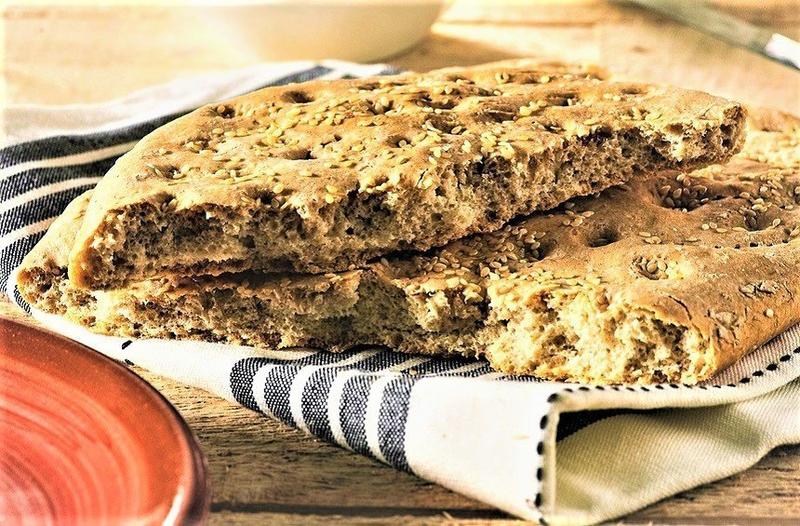
Flat, crunchy, full of taste and lots of sesame. lagana is an institution for Green Monday and the beginning of lent, but what exactly is the reason for that? Its history goes back in centuries in Ancient Egypt and Ancient Greece, and it is entangled with many different traditions, which rather make it even more delightful.
Lagana is unleavened bread, made without yeast, and its consumption on the day refers to the unleavened bread offered by God to the Hebrew, during their adventurous outing from Egypt. The unleavened bread is just as plain as any other food consumed on the first day of fasting, since many recipes do not even use oil for making it, but replace it with tahini.
However, the name of lagana, reaches back in the Ancient Greece to find its roots. Aristophanes in "Ecclesiazusae" (Assembly of Women) says "lagana pepete", other ancient texts refer to its name, too, associated with some sort of bread, while for some it is considered "the pastry of the poor." The truth is that lagana has always been a staple food for many people and, probably, very enjoyable.